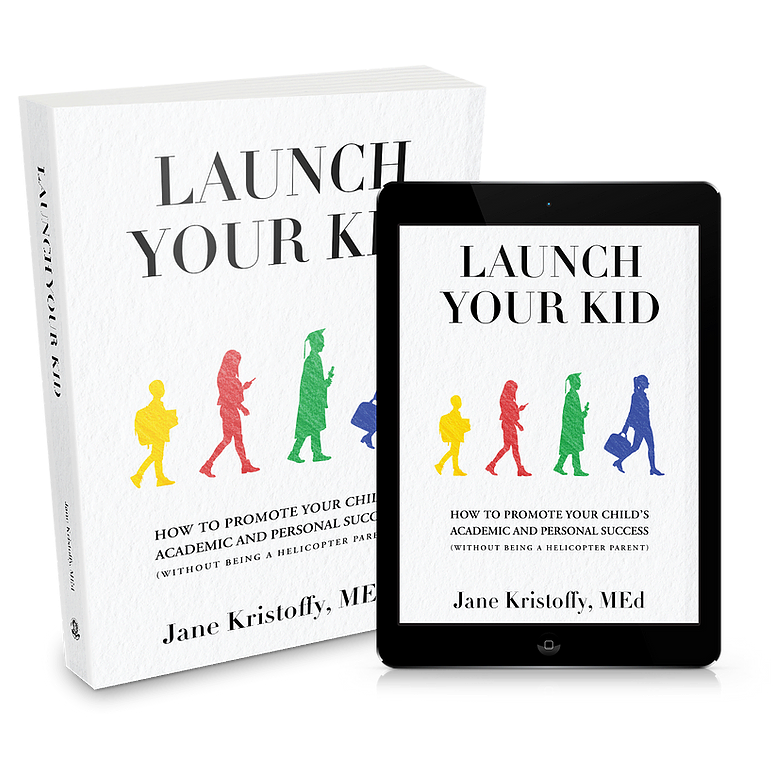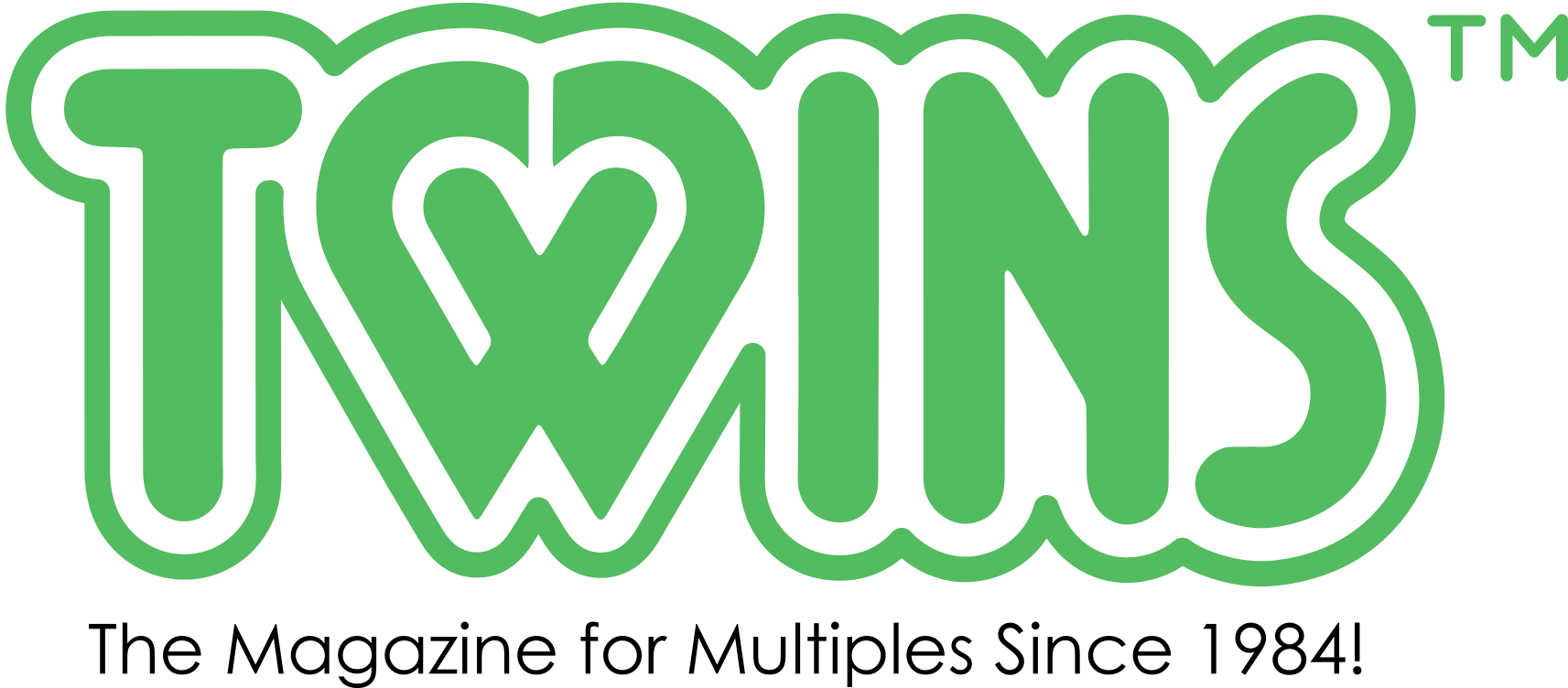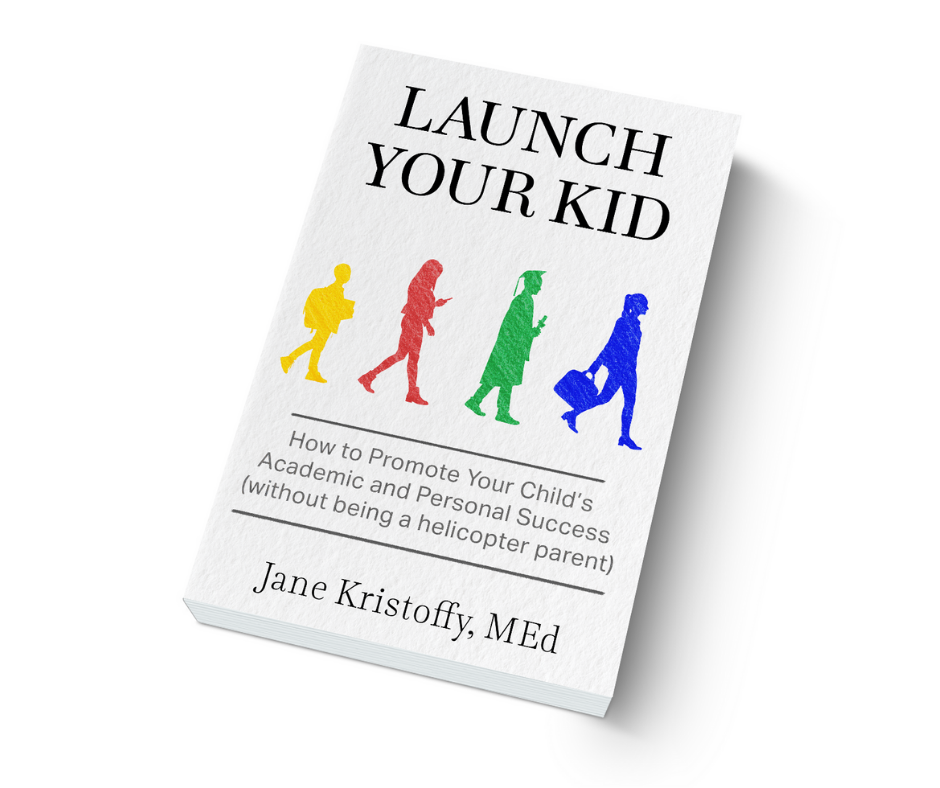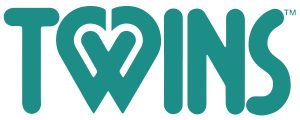Greetings, Twins Magazine. We recently spoke with Jane Kristoffy, an educational strategist based in Toronto and the owner of Right Track Educational Services. Jane has 25 years of experience as a teacher, coach, guidance counselor, school administrator, and parent.
Jane’s also the author of her recently released book Launch Your kid: How To Promote Your Child’s Personal and Academic Success (without being a helicopter parent).
We’re here to talk with Jane about strategies for parents and caregivers to help overcome the mental and emotional challenges children face while learning remotely during the pandemic. Jane, thanks for taking the time to speak with us.
Q: What led you to become an educational strategist?
A: I’ve been a teacher for several years now. After working with students in physical education and guidance and other areas, I took some time off to raise my children. I decided at the time to extend my leave. As a result, I had to sever my ties with the board of education, so I said goodbye. I resigned from the board and stayed at home with my kids.
Later, when I wanted to go back as an educator, I couldn’t get back in. There was no spot for me. There’s a huge surplus in Ontario and I didn’t meet some of the criteria, including French instruction, even though I was very qualified and experienced, I had a chairpersonship at two schools before I resigned; it was devastating, but I pivoted. I picked up a side hustle in 2012 and named it Right Track Educational Services.
Since becoming a parent, people would ask me questions about teaching and parenting: What should I do? Should I look at gifted programs, should we choose French Immersion from the start? What about Montessori? People asked me questions all the time, and they valued what I had to say.
Q: What it was like to start your own business, Right Track Educational Services?
A: In 2018, I decided to make it something real. I started marketing my business, including email newsletters and PR. I’ve taken the business to the next level for a few years now. In the meantime, I did have to hustle to get back into the school board. It took me years. I got on the supply list; it was tough to go from a promising leader in my field to starting from the beginning again. I love to supply, though, it gives me the opportunity to do research and development: talking to the kids’ parents, teachers, getting a finger on the pulse.
Q: At its core, what is Right Track Educational Services?
A: I’m an educational strategist. I help create a strategy for families and students to get through their educational journey and thrive in a world that’s waiting. I help students have smooth transitions from one phase of school to the next and choose a pathway of what that might look like, from elementary to high school and high school to post-secondary education. I even work with families who are starting at the very beginning with kindergarten and preschool.
I offer those families an opportunity to see the big picture of what the next 12 or more years will look like and what their options are. I help students with these transitions. I guide parents and fill in the information gaps they have about their children’s education going forward.
I also provide study-skills boot camps, so students who really need nurturing around how to be good in school gain the learning skills, which I feel are the foundation for academic success, such as time-management organization and good work habits in general.

Q: Now that your business is up and running, what are some of the bigger challenges you face?
A: Well, as an educator, I didn’t have a business background, so I learned by doing. There are MBA courses available for free just by watching YouTube. I listen to podcasts and read books. There are also many entrepreneurial networks, especially for women in the community. I think the hardest part is, as an educator, you get paid a salary and you have designated holidays and so on. As an entrepreneur, you’ve got to hustle and find the work. That’s been a very interesting process for me, but I’ve absolutely loved it.
Q: How does your program stand out from other similar academic services?
A: So, a lot of supplementary services are tutoring businesses that focus on curriculum support for kids. I’m trained in career counseling. I’m student-centered but work with the family as a whole. Elementary and middle-school students aren’t going to make their own academic decisions. Obviously, they need their parents involved. Yet, with my post-secondary destined kids, I guide them to make their own decisions with the parents in the background. I want them to let their kids choose their pathway; for parents, that’s a big decision and an expensive one; it’s good for them to be involved at that stage.
Q: How do you apply your educational guidance to younger students?
A: With the little ones, it’s a conversation. I get to know the family, I get to know their values, hopes, and goals, academically or otherwise. That said, the child has to fit with what the parents want. So let’s say the parents want their kid to go to an Ivy League school, but the student doesn’t have the personality or mindset to be successful in that direction. I work with parents to find the best fit for their kid, even if that best fit isn’t what the parents had in mind. These conversations are works in progress: the parents have goals and dreams. Then you’ve got the reality of who the kid is and getting to know them, working with what you’ve got to find the best fit.
There are so many options right now at schools K-through-eighth-grade, so you can find that best fit when they’re little. Or, perhaps their school experience is more about a family philosophy and value system, maybe their faith or budget. Yet, as the kids get older, they’re going to know who they are, what they’re good at; these students want to thrive and be who they are. The more information parents get, and the more we get to talk with each other, the more open parents are to options for what’s best for the child.
Q: Amid the pandemic, what does your typical parent client look like? Their fears or frustrations, navigating learning challenges in this environment, and how has your business shifted as a result?
A: When the pandemic began well, my business came to a stop. A lot of tutoring businesses did well because they were supplementing the curriculum that parents want so badly. My services are about enrichment. My phone was not ringing off the hook at that point. Come September, though, I almost couldn’t keep up because that’s when I had students and parents come to me armed with a plan. Perhaps they were shifting from public school to private, and they wanted to get the inside scoop on how that process works.
A lot of the work I do is what a guidance counselor in the education system does. Students and parents are really overwhelmed with a whole bunch of new problems. There’s a lot of confusion from elementary to high school because the guidance counselors that existed in the system are now in the classroom to fill the spots for teachers who left to teach virtually. As a result, a lot of support was needed from me as a private consultant to fill in gaps in that area.
Q: How do you help students and parents through the transition from in-class to virtual learning?
A: I would say that kids have transitioned well overall. They’re used to it. I consider my supply teaching assignments as research and development for my business. In the fall I wore a mask, and I was in the schools, I saw what it was like, and the kids were so good. You would have been so proud of all of them, parents out there. They were engaged, excited, enthusiastic to be there, so happy to see their friends and teachers and to learn. I’ve done a handful of virtual supply teaching days since the beginning of January, and it’s adorable how happy the kids are. My message to parents: kids are resilient. They’ll catch up. The teachers are doing a great job, and so are you.
Do the best job you can and focus on today. Don’t get too caught up in the what-ifs and ‘oh my gosh, my child’s fallen behind.’ Forget about it. Just do the best job that you can, this is an extremely overwhelming time for everybody, it’s very socially isolating and confusing for kids, and parents have so much on their plate.
Q: There are many parents who’ll read this and think, ‘how do I get my child out of this funk they’re having?’ What would you say to those parents whose kids are struggling mentally and emotionally?
A: Routine is something kids find safe. I would try to have solid routines in place: mimick the school day, get outside for the breaks that would have been breaks at school, have snacks and meals during the school breaks. Get to bed at the same time every night. Do something non-screen-related at the end of the school day so both kids and parents can take a break. Get outside, find as many ways as possible to have social connections with friends and family and if that means letting screen time go, let it.
Right now, social connection is more important than managing a tight screen boundary, and, by the way, screen boundaries are only negative when passive activity is involved; if it’s an active learning experience, or creative or socializing, that’s okay. A lot of video games incorporate higher-level thinking and communication skills, so kids are socializing, they’re communicating and they’re thinking at a higher level. Don’t be too afraid of screen time that fosters learning.
Q: What is your philosophy with parents when helping them guide their children’s educational path?
A: My perspective is an interesting one. I’m a parent. I’m an educator, I’ve been in lots of different places within the system. I’ve got a private business now. My business allows me to talk to people before, during and after their transition to new schools. Then I keep in touch with them and hear how it’s all going and what they think. I can bring a lot of that information to my conversations with parents, so they have the freedom to choose what they want to do with that information to further their child’s education.
I’m very direct in the conversations I have with parents. I feel I listen as much as possible to what their needs and hopes are. As a parent, I’ve been where you are. I’ve had my own version of your child’s educational struggles, so I’m very clear at the outset of my work with clients that I am not making your decisions. Rather, I’m a voice in your decision-making process. I gather many sources of information, write it all out, and go through a thorough decision-making process before choosing a path for your child’s education.
Q: Tell us about your new book, Launch Your Kid.
A: It just came out in January 2021. My book is a response to the conversations that I’ve had with parents over 25 years and, really, a response to the worries and concerns that keep parents up. Launch Your Kid provides simple strategies that parents can use to help get their kids through school and help get them ready to arrive in the world waiting for them and that they thrive in it.
It’s a combination of all the learning I’ve accumulated throughout my life as an educator, parent and student, and available at www.righttrackeducation.ca/shop. You can also find Launch Your Kid at book stores globally.





